India's Olympic History
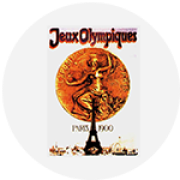


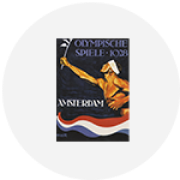

It was yet another successful Games for the Indian men's hockey team, as they clinched their second consecutive gold medal.
European countries stayed away from this edition due to the Great Depression, and the tournament was contested by 37 nations. In hockey, only three nations sent their teams - hosts United States, India and Japan.

This edition of Olympics marked the hat-trick of gold medals for the Indian men’s hockey team at the Games. By the end of the tournament, India had cemented their place among the greatest hockey-playing nations, and their latest success in the Berlin was led by none other than Major Dhyan Chand. 11 countries were divided into three groups - Group A and Group C had four teams each and Group B had three. India were joined with Japan, Hungary and United States in Group A, where only the top team qualified for the semi-finals.

This was India's first Olympic Games as an independent nation, and the country sent 39 athletes to the Games in London, who participated across 10 events.
And yet, the lone medal came in the form of gold, once again from the Indian hockey team.
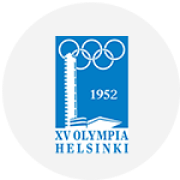
Another Olympics, another routine Games for the Indian hockey team as they clinched their fifth gold medal. But, that was not all.
Wrestler KD Jadhav became independent India's first individual medal winner when he won bronze in men's freestyle wrestling (57 kg) in Helsinki. 64 competitors (60 men, four women) took part in the Games as India finished with a total of two medals.
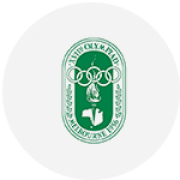
The 1956 Olympiad witnessed the world's largest sporting event move to Australia for the first time with Melbourne hosting the 16th Summer Olympic Games. India fielded a 59-strong contingent - of which sprinter Mary Rao (100m) was the only female athlete.

Having hosted the Winter Olympics in 1956, Italy got to host the summer Games for the first time as the Olympic caravan moved to Rome in 1960.
As far as the Indian contingent, which had 45 athletes taking part in 20 events across six sports, was concerned, their biggest takeaway from the 17th Summer Games were the men’s hockey team's gold-winning streak finally coming to an end after 22 years, and Milkha Singh nearly becoming the third Indian to win an individual Olympic medal.

The 1964 Olympiad was the first time the Games were hosted in an Asian country, as Japan was awarded the opportunity to showcase themselves in new light and redeem its global image in the aftermath of the second World War. Tokyo, which is also scheduled to host this year's postponed Games, was chosen as the host city for the eighteenth edition with Yoshinori Sakai, who was born on the day the atom bomb exploded in Hiroshima, chosen as the carrier of the Olympic flame as a tribute to the victims.

The 19th Olympic Games at Mexico City, the first and till date the only Games held in Mexico, is most famously remembered for the ‘Black Power Salute’ in what was one of the most political1964 Tokyo Olympics Olympics of all time. It was also the first time East and West Germany competed as separate nations, and also witnessed drug testing and female gender verification being carried out for the first time in the history of the event.
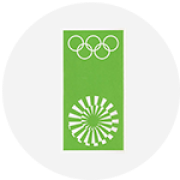
Perhaps the most infamous Games of all time, the 1972 Munich Olympics, were the first to be held on German soil since the end of the second World War. Like the Tokyo edition eight years ago, 1972 Munich was meant to mark the beginning of a new era for the war-torn nation. But the enduring memory of these Games will be the terrorist attack in the Olympic village that resulted in the deaths of five Israeli athletes and six coaches.

For the first time in over fifty years, India failed to win a single medal at the Olympic Games in 1976 in Montreal - the first and till date the only time the Summer Games have been hosted in Canada.
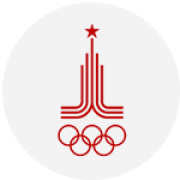
The 1980 Olympics, held in Moscow, will always be remembered the world over for the boycott by many nations, led by the United States of America, due to the Soviet Union’s invasion of Afghanistan. But Indians will remember it as the last time the Indian hockey team won a medal-gold- at the Games.

This was the year that the great Indian hockey drought at the Olympics began. The men's hockey team, with names like Mohammed Shahid, Zafar Iqbal, Joaquim Carvalho and Marcellus Gomes, returned home empty-handed.
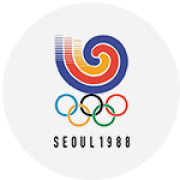
At the Seoul Olympics in 1988, the Indian contingent did not return home with any medals.
The men's hockey team had a disappointing run at the 1988 Olympics, finishing sixth, despite the presence of Mohammed Shahid, MM Somaya, Mervyn Fernandis, Jude Felix, Jagbir Singh, Mark Patterson and Pargat Singh.

The 1992 will forever be remembered in history for the breath-taking artistry of the USA's Dream Team. While that outfit, consisting of Magic Johnson, Larry Bird, Michael Jordan, was mesmerising the world, it was the first time two of India's biggest sporting legends-Leander Paes and Dhanraj Pillay—made their Games debut.

At the Atlanta Olympics, Leander Paes wrote his id in Olympic history by winning a bronze medal in the men's singles tennis event. Paes' medal was the first individual medal for an Indian athlete at the Olympics after KD Jadhav's bronze at Helsinki in 1952 and the first medal for India at the Games after 1980.

The first Summer Olympics of the new millennium didn’t bring any great cheers for the country as the 65-member Indian contingent returned with a solitary bronze. Yet, this continues to be among the most important bronze medals in India's sports history as it was for the first time that a woman had won it.

India sent a contingent of 73 athletes to the 2004 Summer Olympics in Athens, and by the time the team returned, Captain Rajyavardhan Singh Rathore had become a household id in the country. Hitherto unknown in public conscience despite medals at World Championships, World Cups, and Commonwealth Games, 'Chilly' shot a silver in men's double trap event to win country's only medal at the 2004 Olympics.

A bespectacled Abhinav Bindra with a raised fist and an impish, embarrassed smile, having won gold with an incredible 10.8 in the last shot of men’s 10-metre air rifle final, became the toast of a medal-starved nation on 11 August, 2008 to mark Beijing Olympics as an immovable pit-stop in India’s sporting history. It remains India’s only individual gold at the Games. A World Championships gold medallist and a two-time Commonwealth Games winner by the time he entered his third Olympics, a yet-to-be-25 Bindra put up an exhibition of pristine shooting under tremendous pressure to reach where no Indian shooter, or an individual athlete, had been before.

India's most successful Olympics till date saw the country doubling its medal haul from Beijing. There was no gold medal, but Indian shooting and wrestling did come of age. Vijay Kumar and Gagan Narang won a silver and a bronze in 25-metre rapid fire pistol and 10-metre air rifle events respectively, while Joydeep Karmakar finished fourth in men's 50-metre prone event. Wrestler Sushil Kumar bettered his bronze medal from 2008 with a silver in 66 kg category while Yogeshwar Dutt won a bronze in 60 kg event.

India sent their highest ever contingent - 117 athletes across 15 disciplines - to Rio Olympics in 2016. Having won six medals in the previous edition of the Olympics, talks of a double-digit haul did the rounds in the run-up to the Games, but once the action began in the Brazil capital, it was a tale of gloom and disappointment.

The Summer Games returned to Tokyo for the first time since 1964, but it took one more year than scheduled time for Japan to host the Olympics. The 2020 Games were held in 2021 due to the COVID-19 pandemic, becoming the first Olympic Games to be postponed. They were also hosted without spectators due to the pandemic. All that, however, was quickly forgotten after the successful hosting of the Games, which saw India win their highest-ever seven medals, including the first track and field gold by Neeraj Chopra in javelin throw.
The Paris Olympics 2024, officially the Games of the XXXIII Olympiad, will take place in France from 26 July to 11 August. The 19-day Quadrennial event will include 32 sports -- 28 returning sports from the Tokyo 2020 Summer Olympics and four special additions. The new additions are climbing, skateboarding, surfing, and breaking. The sport of breaking is making its Olympic debut.
Overall 329 events are planned and around 10,500 athletes will take part in the 2024 Olympic Summer Games in Paris. India sent a 121-member strong contingent to the Tokyo Olympics and is expected to send a bigger contingent to Paris. They are also hoping to win more than seven medals that they won in Tokyo, which was their best-ever haul. Omnis dolor repellendus. Temporibus autem quibusdam et aut officiis debitis aut rerum necessitatibus saepe eveniet ut et voluptates repudiandae sint et molestiae non recusandae. Itaque earum rerum hic tenetur a sapiente delectus, ut aut reiciendis voluptatibus maiores alias consequatur aut perferendis doloribus asperiores repellat